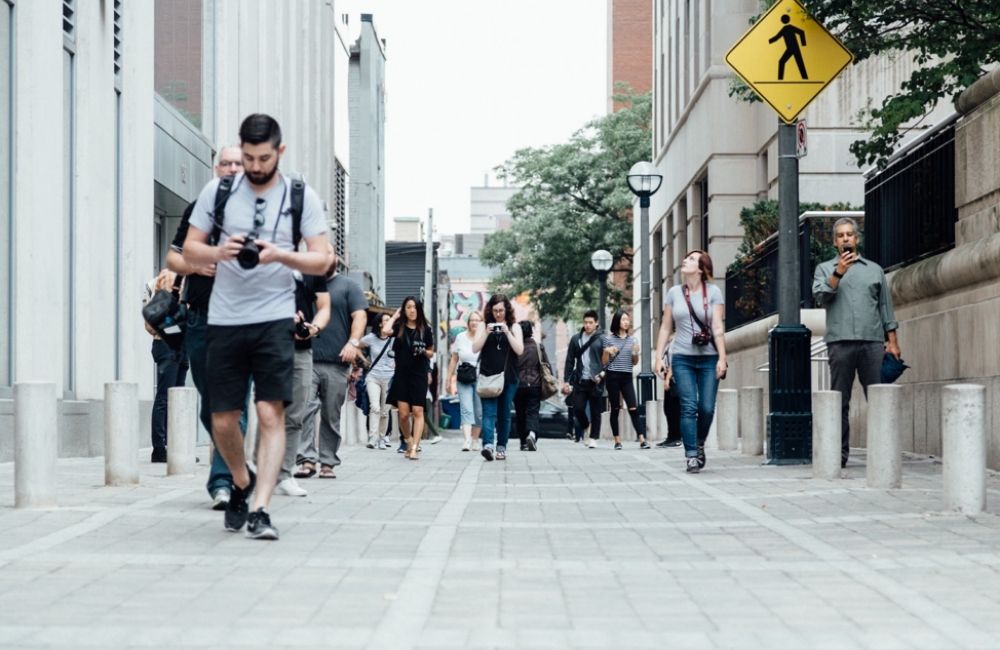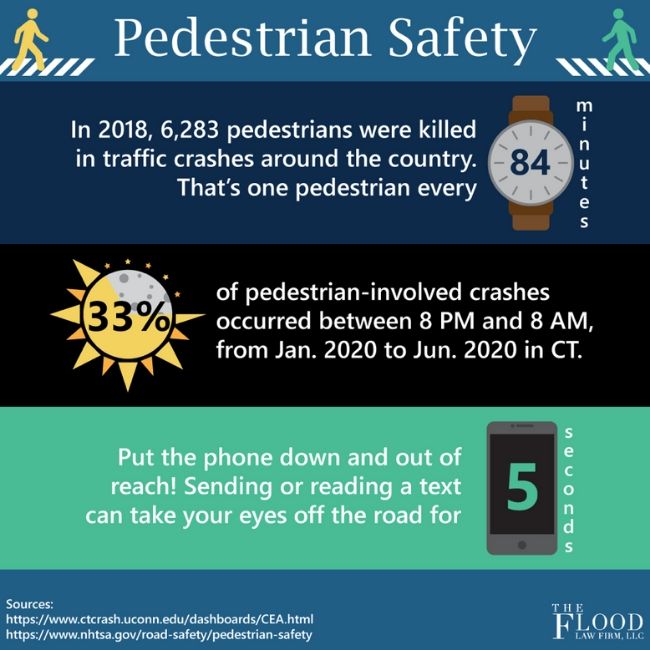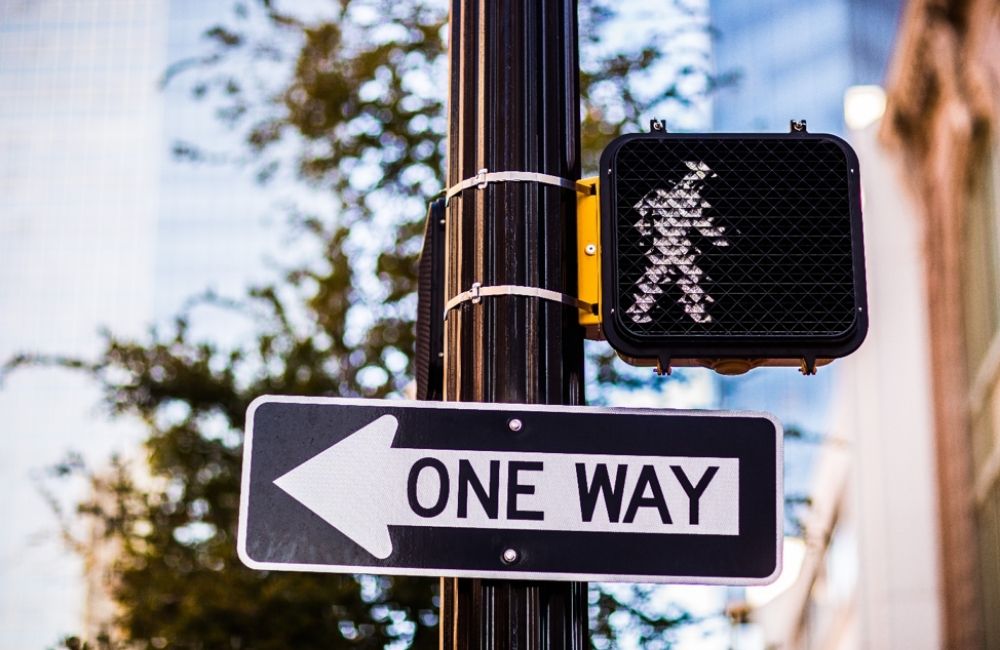As the sunshine melts away the quarantine blues, more people are outside and enjoying the fresh air. Hustling streets and energetic downtowns are providing a needed boost to the economy, but also creating an unsuspecting danger to pedestrians.
In 2018, the National Highway Traffic Safety Administration (NHTSA) reported that 6,283 pedestrians were killed in traffic crashes. That’s one pedestrian every 84 minutes.

Pedestrian-involved crashes can happen to anyone at any time, and it’s crucial that both pedestrians and drivers stay vigilant to avoid potential hazards. This article will explain the myths and tips you need to know to drive with caution and walk with confidence.
Myth: Pedestrian-involved crashes haven’t occurred because of social distancing recommendations.
>Due to the COVID-19 pandemic, stay-at-home orders and social distancing recommendations were implemented in Connecticut from March 2020 and extend until mid-July 2020. It’s easy to overlook the impact of motor vehicle accidents, with more people staying home and off the road.
While the total number of pedestrian-involved crashes has reduced compared to this time last year, the percentage that has occurred out of all motor vehicle crashes has increased.
According to the Connecticut Crash Data Repository, 619 pedestrian-involved crashes occurred from January 2019 to June 2019, which is 1.38% of all crashes reported. This year, they make up 1.46% of all crashes reported. 430 pedestrian accidents have occurred between January 2020 and June 2020, with 19 crashes causing fatal injuries.
Myth: If there’s a crosswalk, it’s safe to cross.
Even if there is a crosswalk and pedestrians have the right-of-way, doesn’t mean it’s safe to cross. Visual obstructions such as trees, signs, and other vehicles can hinder a driver’s perspective. Drivers may not be able to see the pedestrian soon enough to yield, or worse, the driver may be distracted altogether. 33% of pedestrian-involved crashes from January 2020 to June 2020 occurred between the hours of 8 PM and 8 AM. Reflective clothing and a flashlight can increase the chance of a pedestrian being seen and potentially avoid this hazard.

Walk With Confidence: Pedestrian Safety Tips
- Know Your Road
Whether it’s identifying the nearest crosswalk or looking up your local traffic signs, it’s important to know your road! If you have a common route that you take to work or school, try mapping out the safest points to walk and cross the street. This is especially important for parents, as children can be at risk of walking to their bus stop. - Put Down Your Phone
Most people have heard of distracted driving, but there is also distracted walking! Using your phones while on the road, whether walking or driving, is never a good idea. It can pull your focus from your surroundings, as well as lower your reaction time to an oncoming hazard. Put down the phone until you’ve safely reached your destination. - Be Visible
If you can’t see an oncoming vehicle, then chances are that they can’t see you. If your view is obstructed by trees, bushes, signs, or other vehicles, try to move to an area where oncoming traffic is visible. Be cautious during inclement weather such as fog or rain, as well as at blind driveways.
These tips are great steps to be safer on the road and help pedestrians walk with confidence. When it comes to pedestrian safety, the NHTSA and National Safety Council are excellent resources to further explore and understand what you can do to be prepared.
Drive With Caution: Safety Tips to Help Drivers Stay Alert

- Slow Down
Practice yielding at intersections, as pedestrians have the right-of-way as they step off the curb and into a crosswalk. If you aren’t at an intersection or crosswalk, make sure to drive the speed limit, especially in school zones. There may be a pedestrian that you don’t initially see, and it’s important to be able to stop if a pedestrian suddenly comes into proximity. - Minimize Distractions
Never drive under the influence of alcohol and/or drugs. Intoxication not only lowers your reaction time to avoid pedestrians but is also a danger in general to other drivers on the road. Moreover, texting while driving can be just as reckless. The NHTSA reports that sending or reading a text can take your eyes off the road for 5 seconds. That critical reaction time could be needed to avoid a pedestrian in the road. Try putting your phone out of reach, so that you aren’t tempted to check the latest update. - Look Out, All the Time
Pedestrian-involved crashes can happen to anyone, at any time. Children can be hard to see because of their size, and pulling out of your driveway can be riddled with visibility hazards. While staying alert to pedestrians at intersections and crosswalks is a great step, being aware at all times is vital.
Pedestrian safety is a two-way street! Drivers must stay vigilant to help keep our roads and walkways safe.
Pedestrian Accident Lawyers
At The Flood Law Firm, we know that pedestrian-related accidents can be difficult. If you or a loved one have been injured by a careless or distracted driver, please contact our firm to learn more about your family's legal options at (860) 346-2695.
